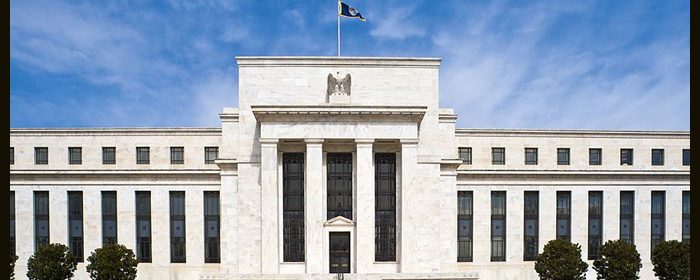Fed’s Beige Book Says U.S. Economy Expanded At Somewhat Faster Rate

Partly reflecting the positive effects of increased Covid-19 vaccination rates and relaxed social distancing measures, the Federal Reserve’s Beige Book said Wednesday the U.S. economy increased at a somewhat faster rate from early April to late May.
The Beige Book, a compilation of anecdotal evidence on economic conditions in each of the twelve Fed districts, still described the pace of economic growth as moderate.
The Fed said the effects of expanded vaccination rates were most notable in consumer spending, as increased leisure travel and restaurant spending augmented ongoing strength in other spending categories.
However, several districts also noted the adverse impacts of supply chain disruptions, with manufacturers reporting that widespread shortages of materials and labor along with delivery delays made it difficult to get products to customers.
Similar challenges also affected the housing sector, where strong demand, buoyed by low mortgage interest rates, outpaced homebuilders’ capacity to build, leading some to limit sales.
The Fed acknowledged the continuing supply chain disruptions also contributed to an increase in overall price pressures since the last Beige Book in April.
“Input costs have continued to increase across the board, with many contacts noting sharp increases in construction and manufacturing raw materials prices,” the Fed said.
With strengthening demand allowing some businesses to pass through higher costs to their customers, contacts anticipate facing further cost increases and charging higher prices in coming months.
Ahead of Friday’s closely watched monthly jobs report, the Beige Book said staffing levels increased at a relatively steady pace, with two-thirds of the districts reporting modest employment growth over the reporting period.
While job growth was strongest in food services, hospitality, and retail, the Fed noted it remained difficult for many firms to hire new workers, especially low-wage hourly workers, truck drivers, and skilled tradespeople.
“The lack of job candidates prevented some firms from increasing output and, less commonly, led some businesses to reduce their hours of operation,” the Fed said.
The release of the Beige Book comes two weeks ahead of the Federal Reserve’s next monetary policy meeting, which is scheduled for June 15-16.
Source: Read Full Article
